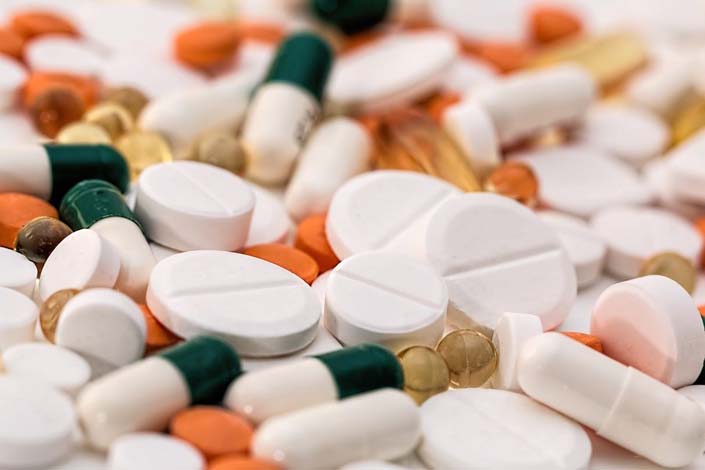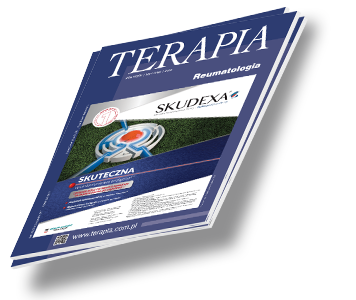Obrazy kliniczne w zespołach long-COVID i post-COVID Terapia 2022, 1 ( 408 ) : 55 - 62
Opcje terapii COVID-19
COVID-19 therapeutic options
In the period early after infection with SARS-CoV-2, there is the greatest chance of effective use of antiviral drugs. Until the end of 2021, the only drug with conditional approval from the European Medicines Agency was remdesivir. Currently, such approval has been given for molnupiravir, the monoclonal antibodies of kasirivimab plus imdevimab, and for the use of nirmatrelvir/ritonavir as needed. These drugs should be used within the first five days of the onset of clinical symp-toms or a positive direct test result (PCR or antigen test).
In the period of developed COVID-19 disease with respiratory failure, it is recommended to use drugs that block the immune system ‒ tocilizumab or baricitinib, and glucocorti-coids. Budesonide should be used in the early stages of the disease in the form of inhalation, especially in people whose course of the disease may be severe due to coexisting chronic diseases.
There is a long list of drugs that were initially considered potentially effective, which has not been confirmed in randomized clinical trials, and there is no substantive justification for their use. A large number of studies are currently underway, the results of which may change the current guidelines, so it is obligatory to follow up and update the recommendations.
Spektrum klinicznych konsekwencji zakażenia wirusem SARS-CoV-2 jest bardzo szerokie, od przebiegu całkowicie bezobjawowego do ciężkiej, zagrażającej życiu niewydolności oddechowej i wielonarządowej. Przebieg kliniczny wyznacza zasady postępowania, ponieważ podejmowane leczenie winno być adekwatne do rzeczywistej sytuacji danego pacjenta. W związku z faktem, że COVID-19 jest chorobą o bardzo złożonym przebiegu i wieloukładowej patologii, sam proces terapeutyczny jest wielokierunkowy. W artykule uwzględniono leczenie choroby o typowym przebiegu. Nie podjęto natomiast tematu profilaktyki i leczenia już dokonanych powikłań i następstw.

Zaloguj się i przeczytaj bezpłatnie całą treść artykułu.
Nie masz jeszcze konta dostępowego?
Zarejestruj się bezpłatnie, a otrzymasz:
* dostęp do wszystkich doniesień oraz pełnych tekstów artykułów naukowych w naszej Czytelni,
* prawo do bezpłatnego otrzymywania newslettera "Aktualności TERAPIA" z przeglądem interesujących i przydatnych wiadomości ze świata medycyny oraz systemu ochrony zdrowia w Polsce i na świecie,
* możliwość komentowania bieżących wydarzeń oraz udziału w ciekawych quizach i konkursach.
Zapraszamy serdecznie, dołącz do naszej społeczności.



Dodaj komentarz